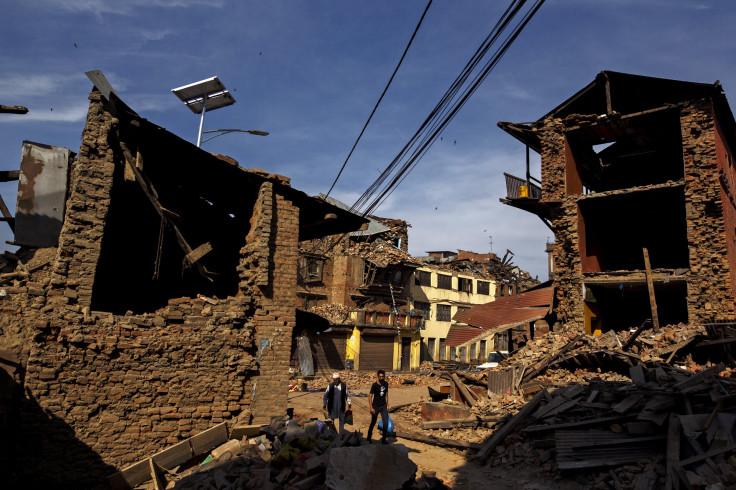Nepal Earthquake 2015 Death Toll Update: More Than 7,500 Dead In Earthquake, 14,500 Injured, Government Says

More than 7,500 people have died as a result of the magnitude-7.8 earthquake that struck Nepal on April 25, the country's government said Tuesday. The death toll could rise still higher, as thousands of people remained missing and remote villages affected by the quake were still being reached. More than 14,500 people have been injured in the disaster, which caused buildings to collapse, trapping people in the rubble.
At least 8 million people have been affected by the earthquake, and more than 2 million have been displaced, the United Nations said, as Voice of America reported. Nearly 40,000 patients had been treated in hospitals in the Kathmandu valley as of Tuesday, the World Health Organization said. Fifty-eight camps had been set up to house roughly 37,500 people who lost homes or had left them. In addition to seeing injured patients and providing supplies, aid and relief groups have also aimed at preventing outbreaks of waterborne diseases, such as cholera, by distributing clean water and water purification tablets.
Still, more than a week after the quake, rescue and recovery groups were still working to reach communities in isolated areas that had been cut off after roads were severely damaged or made impassable by landslides. In many villages, especially those near the earthquake's epicenter, nearly all the homes had collapsed, leaving residents to spend nights in the open, sometimes in the rain. The International Red Cross estimated that up to 90 percent of homes were destroyed in some communities.
Nepal's government came under criticism for failing to provide aid to more remote and rural areas and for hindering aid deliveries with its bureaucracy. The United Nations' Office for the Coordination of Humanitarian Affairs said that some organizations faced challenges simply in bringing aid into the country. "The Nepali government wanted to tax them like ordinary goods," a spokeswoman for the office, Orla Fagan, told the Wall Street Journal. A spokesman for the Nepali government denied the claim.
© Copyright IBTimes 2024. All rights reserved.






















